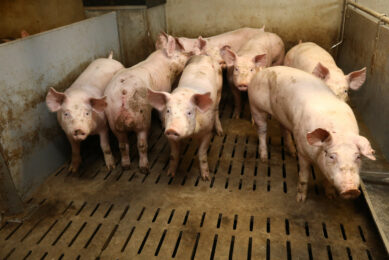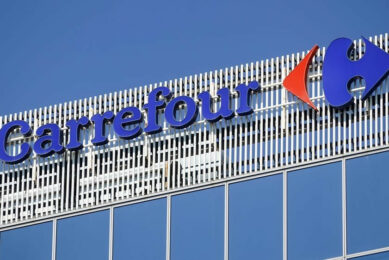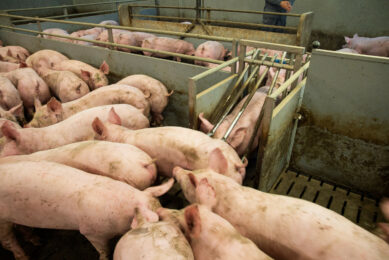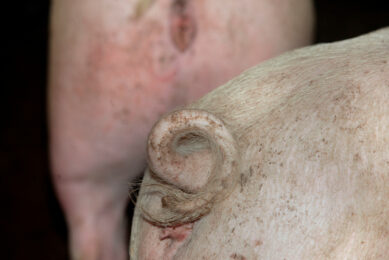All is not well in Britanny
The annual Space show, in Rennes, France, 14-17 September, is traditionally a place for French agriculture to meet and greet. Disgruntled farmers once more took the opportunity to voice their discontent about the current state of affairs. Low pig prices, and the 2013 deadline seem to loom like dark clouds on the horizon.
By Stuart Lumb
Visitors to the 2010 Space show in Rennes could not have helped but notice the presence of an unusually large number of police and gendarmes, many kitted out in full riot gear. French farmers targeted the show to express their anger about low prices and this year the authorities were expecting trouble. Many stands displayed posters expressing concerns about the alleged dumping of German pig meat onto the French market. Exhibitors and farmers were wearing badges along with black arm bands, symbolic of the ‘death of the French pig industry’.
Normally the minister of agriculture tours the show on the opening day but this year he was ushered into the conference centre to meet show officials.Dramatically, on the show’s opening day, in a demonstration of frustration over low milk prices, angry dairy farmers trashed three big stands, including the one belonging to the French Ministry of Agriculture. Nothing happened in the pig halls but exhibitors were told to clear hall 5 for two hours during midday later in the week as organisers planned on closing the hall in anticipation of action by miltant pig farmers.
Cooperatives
France is well known for its many famous cooperatives which generate benefits for members, e.g. lower feed costs, but even so about a third of producers are losing money. Traditionally, many pig farms are husband-and-wife operations with around 200 sows. They often have no arable land and so don’t have the advantage of home-grown feed. They have no paid labour costs, but even so there is a limit to how long they are prepared to run at a loss. The farmers see the high price of pig meat products in the supermarkets relative to what they receive for their pigs and are very angry that more of this profit is not passed down the chain to them.
Farms, however, will have to combine to survive. Some farmers will have to become hired hands, which is a loss of status – or leave the industry entirely. Many small French businesses have undoubtedly gone bust in the recession and the owners no doubt think why should small farmers be any different.To add to the French pig industry woes, looming on the horizon is the thorny issue of the partial dry sow stall ban which will become law on 1 January 2013. Many farmers still have to get rid of their sow stalls. They say they can’t afford to do so and want a derogation on this legislation, but the EU is not budging on this issue. This is much to the relief of UK pig farmers, who had to get rid of all their sow stalls some eleven years ago – sows must be loose housed entirely throughout gestation.
Many of the exhibitors at Space had various different loose housing systems on show, ranging from complex electronic sow feeding systems to simple free access stalls, this latter system is favoured by Danish producers. The clock is ticking for those French producers that have not yet got rid of their stalls.











